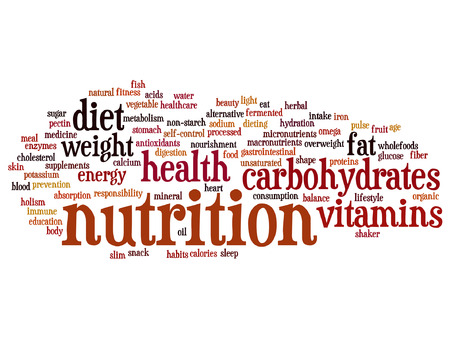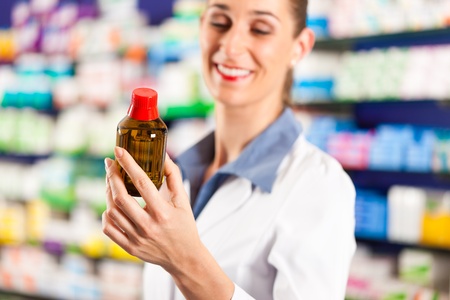1. Vitamin A: The Skin Renewal Booster
Vitamin A is one of the most important nutrients when it comes to maintaining healthy, glowing skin and strong hair. It plays a key role in skin cell regeneration, helping your skin shed old cells and replace them with new ones. This renewal process keeps your complexion looking fresh and vibrant.
One of the standout benefits of vitamin A is its ability to help combat acne. It works by reducing the production of excess oil (sebum) in the skin and keeping pores clear, which can significantly lower the chances of breakouts. For people struggling with acne-prone skin, getting enough vitamin A might be a game-changer.
Another major perk? Vitamin A helps reduce visible signs of aging. It encourages collagen production, which improves skin elasticity and reduces the appearance of fine lines and wrinkles. Collagen also supports scalp health, which can promote stronger, healthier hair growth over time.
Top Sources of Vitamin A
| Food Source | Type of Vitamin A | Benefits |
|---|---|---|
| Sweet Potatoes | Beta-Carotene (converted to Vitamin A) | Supports skin repair and immune function |
| Carrots | Beta-Carotene | Antioxidant properties that protect skin cells |
| Spinach | Beta-Carotene | Nourishes both skin and scalp |
| Liver (beef or chicken) | Retinol (active form) | Directly boosts collagen production and cell turnover |
| Dairy products (milk, cheese) | Retinol | Supports hydration and skin elasticity |
How Much Do You Need?
The recommended daily intake of vitamin A for adults in the U.S. is about 700 mcg RAE (Retinol Activity Equivalents) for women and 900 mcg RAE for men. Its important not to overdo it—too much vitamin A from supplements can be harmful. Try to get most of it from food sources unless advised otherwise by your healthcare provider.
Pro Tip:
If youre eating plant-based sources like carrots or spinach, pair them with a small amount of healthy fat (like avocado or olive oil). This helps your body absorb the beta-carotene more effectively.
2. Vitamin C: The Ultimate Antioxidant for Radiance
Vitamin C is one of the most powerful and essential nutrients when it comes to keeping your skin glowing and your hair looking vibrant. As a potent antioxidant, it plays a key role in protecting your skin from everyday stressors like pollution, UV rays, and environmental toxins. These stressors create free radicals—unstable molecules that can damage your skin cells and speed up aging. Vitamin C helps neutralize these free radicals before they can do harm.
Why Your Skin Loves Vitamin C
One of the main reasons vitamin C is so important for healthy skin is its role in collagen synthesis. Collagen is the protein responsible for keeping your skin firm, smooth, and elastic. Without enough vitamin C, your body cant produce collagen properly, which can lead to dullness, sagging skin, and even slower wound healing.
Here’s how vitamin C benefits your skin:
- Boosts Collagen Production: Helps reduce fine lines and wrinkles
- Brightens Skin Tone: Fades dark spots and evens out complexion
- Fights Free Radicals: Protects against premature aging
- Improves Elasticity: Keeps skin firm and bouncy
Hair Benefits You Shouldnt Miss
Vitamin C isnt just a skincare superstar—it also supports strong, healthy hair. It helps your body absorb iron more efficiently, which is crucial for hair growth. Plus, it strengthens hair follicles and prevents breakage by supporting collagen around the roots.
Top Food Sources of Vitamin C
| Food | Vitamin C Content (per serving) |
|---|---|
| Oranges (1 medium) | ~70 mg |
| Strawberries (1 cup) | ~85 mg |
| Red Bell Peppers (½ cup raw) | ~95 mg |
| Kale (1 cup cooked) | ~53 mg |
| Pineapple (1 cup chunks) | ~79 mg |
Pro Tip:
If youre taking a vitamin C supplement, look for “ascorbic acid” or “L-ascorbic acid” on the label. These are highly effective forms that your body can absorb easily.

3. Biotin: The Hair Strengthening Nutrient
Biotin, also known as vitamin B7, is a water-soluble B-vitamin that plays a big role in keeping your hair strong and healthy. If you’ve ever looked into vitamins for hair growth, chances are you’ve come across biotin—and for good reason. It helps your body convert nutrients into energy and supports the production of keratin, which is the protein your hair is made of.
Why Biotin Matters for Hair and Skin
Without enough biotin, your hair may become brittle, thin, or even start to fall out. This nutrient also helps maintain a healthy scalp, which is essential for growing strong, shiny hair. Plus, biotin contributes to skin health by supporting the production of fatty acids that nourish skin cells.
Signs You Might Need More Biotin
- Hair thinning or hair loss
- Brittle nails
- Dry or scaly skin
- Lack of energy or sluggish metabolism
Top Food Sources of Biotin
| Food | Approximate Biotin Content (mcg per serving) |
|---|---|
| Egg yolks (cooked) | 10 mcg |
| Almonds (1 oz) | 1.5 mcg |
| Sweet potatoes (1/2 cup) | 2.4 mcg |
| Spinach (1/2 cup, cooked) | 0.5 mcg |
| Salmon (3 oz, cooked) | 5 mcg |
Should You Take a Supplement?
If youre not getting enough biotin through your diet or if you’re experiencing symptoms like hair loss or brittle nails, a supplement might help. Many over-the-counter hair vitamins include biotin as a key ingredient. Just be sure to talk to a healthcare provider before starting any new supplement routine.
Quick Tip:
Your body needs other nutrients like zinc and iron to fully benefit from biotin, so aim for a well-rounded diet for best results.
4. Omega-3 Fatty Acids: Hydration and Anti-Inflammation
Omega-3 fatty acids are essential nutrients that play a powerful role in maintaining healthy skin and strong, vibrant hair. These healthy fats help keep your skin hydrated from the inside out, reduce inflammation, and support overall skin barrier function. They also nourish hair follicles, promoting shinier, stronger strands and reducing breakage.
Why Omega-3s Matter for Skin and Hair
Your body can’t produce omega-3s on its own, so it’s important to get them from your diet or supplements. When you’re not getting enough, your skin may feel dry, irritated, or inflamed—and your hair could become brittle or dull.
Benefits of Omega-3s
| Benefit | Description |
|---|---|
| Skin Hydration | Omega-3s help lock in moisture and prevent dry, flaky skin. |
| Anti-Inflammatory Properties | They reduce redness, swelling, and irritation caused by inflammation. |
| Hair Follicle Support | Nourishes follicles to encourage growth and reduce hair thinning. |
| Improved Scalp Health | A healthy scalp leads to healthier hair overall. |
Top Food Sources of Omega-3s
- Fatty fish: Salmon, mackerel, sardines, and tuna are rich in EPA and DHA omega-3s.
- Chia seeds & flaxseeds: Great plant-based sources of ALA omega-3s.
- Walnuts: A tasty snack that also supports skin and hair health.
- Algal oil: A vegan-friendly supplement made from algae.
How Much Do You Need?
The American Heart Association recommends eating at least two servings of fatty fish per week. If youre not into seafood, consider taking a high-quality omega-3 supplement after consulting with your healthcare provider.
If you want glowing skin and shiny hair, don’t overlook the power of omega-3 fatty acids—they’re a simple but powerful addition to any beauty-focused nutrition plan.
5. Zinc: The Secret to Clear Skin and Lush Hair
Zinc might not be the first nutrient you think of when it comes to beauty, but its a real game-changer for both your skin and hair. This essential mineral plays a big role in regulating oil production, which helps keep breakouts at bay. If youre dealing with acne or oily skin, zinc could be a key part of the solution.
But zinc doesn’t just help with clearer skin—it’s also important for healthy hair. It supports the function of hair follicles, which are the tiny structures in your scalp where each hair grows. When your body has enough zinc, it helps prevent hair thinning and promotes stronger, fuller strands.
Another bonus? Zinc helps with wound healing and skin repair. That means it can assist your skin in bouncing back from blemishes, cuts, or irritation more quickly.
How Zinc Supports Skin and Hair Health
| Zinc Benefit | How It Helps |
|---|---|
| Regulates Oil Production | Helps control sebum levels to reduce acne and shine |
| Supports Wound Healing | Aids in repairing damaged skin tissues faster |
| Prevents Hair Thinning | Maintains follicle health to reduce shedding and breakage |
| Reduces Inflammation | Soothes irritated skin and helps calm flare-ups |
Best Sources of Zinc
You can get zinc through both your diet and supplements. Here are some great food sources:
- Oysters (one of the richest sources)
- Beef and poultry
- Pumpkin seeds
- Lentils and chickpeas
- Cashews
- Dairy products like cheese and milk
Pro Tip:
If youre considering taking a zinc supplement, be sure not to overdo it—too much can cause side effects like nausea or interfere with other minerals like copper. Its always best to talk to your doctor before starting any new supplement.


